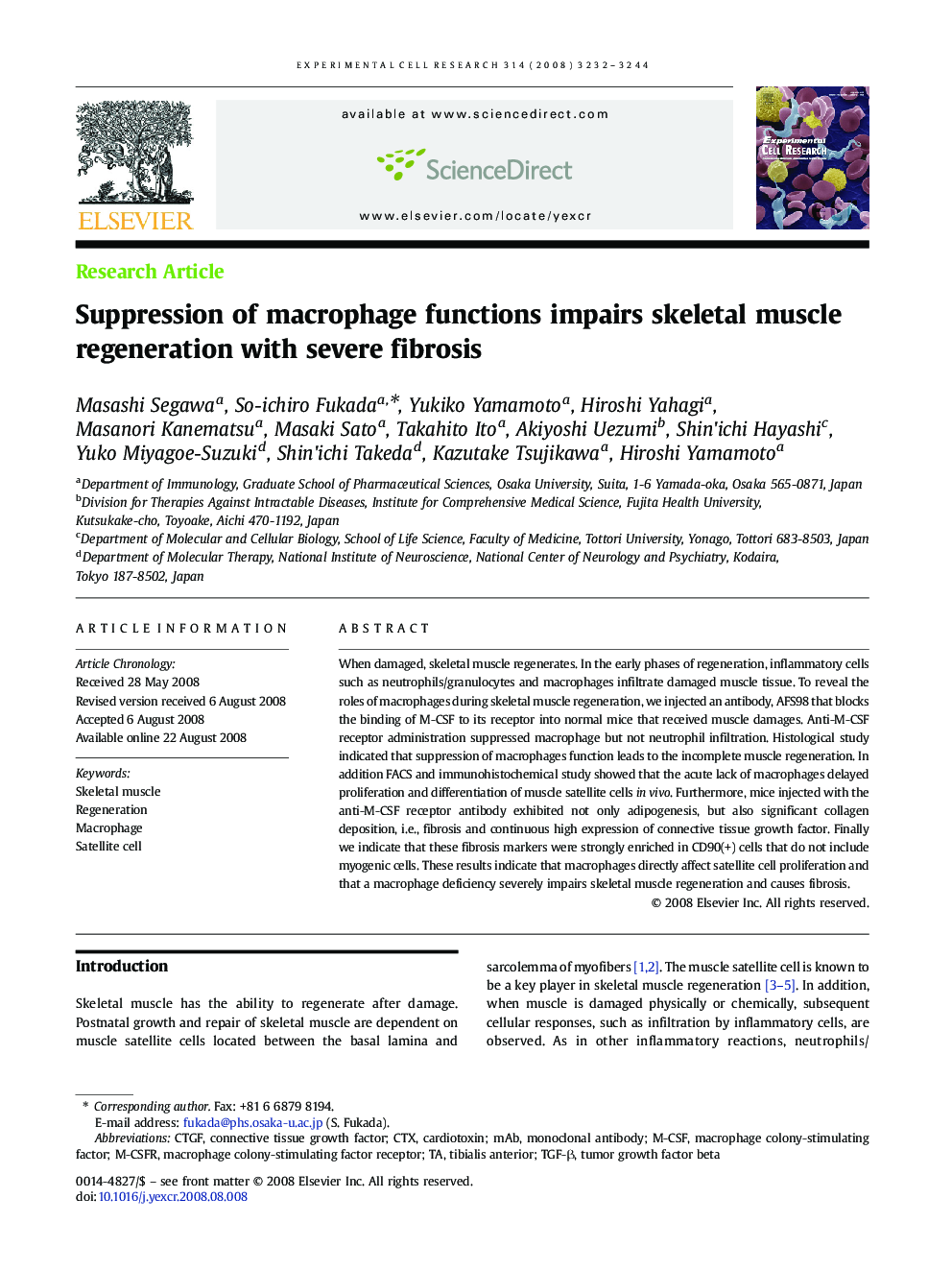| Article ID | Journal | Published Year | Pages | File Type |
|---|---|---|---|---|
| 2132023 | Experimental Cell Research | 2008 | 13 Pages |
When damaged, skeletal muscle regenerates. In the early phases of regeneration, inflammatory cells such as neutrophils/granulocytes and macrophages infiltrate damaged muscle tissue. To reveal the roles of macrophages during skeletal muscle regeneration, we injected an antibody, AFS98 that blocks the binding of M-CSF to its receptor into normal mice that received muscle damages. Anti-M-CSF receptor administration suppressed macrophage but not neutrophil infiltration. Histological study indicated that suppression of macrophages function leads to the incomplete muscle regeneration. In addition FACS and immunohistochemical study showed that the acute lack of macrophages delayed proliferation and differentiation of muscle satellite cells in vivo. Furthermore, mice injected with the anti-M-CSF receptor antibody exhibited not only adipogenesis, but also significant collagen deposition, i.e., fibrosis and continuous high expression of connective tissue growth factor. Finally we indicate that these fibrosis markers were strongly enriched in CD90(+) cells that do not include myogenic cells. These results indicate that macrophages directly affect satellite cell proliferation and that a macrophage deficiency severely impairs skeletal muscle regeneration and causes fibrosis.
